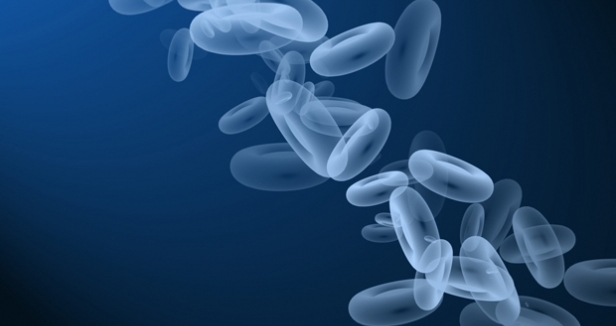Health Today
Oxygenate your body - How to restore oxygen balance and help prevent disease


In my health practice, I have found many people don't realize that oxygen is one of the primary catalysts for energy and optimal health in the human body.
Oxygen plays a vital role, not only in our breathing processes but in every metabolic process in the body. Nutrient compounds inside our cells are oxidized by enzymes and this oxidation process is our main source of energy.
In addition, healthy cells in the body are aerobic, meaning they require adequate levels of oxygen for cellular respiration and growth. When cells are deprived of oxygen for any reason, decay sets in and cells can mutate or die.
The Oxygen Cancer Connection
Dr. Otto Warburg, 1931 Nobel prize winner, discovered a close connection between oxygen and cancer. His studies showed that the primary cause of cancer is directly related to oxygen-deprived cells. In fact, he found that cancer cells are anaerobic and actually thrive in an oxygen-deficient environment.
Warburg also discovered that a slightly alkaline pH in the body meant higher levels of oxygen uptake. These days, having a low blood oxygen level is a normal clinical finding for people with chronic diseases.
How Oxygen Is Utilized in the Body
Oxygen utilization is a highly complex process in the body, but the simpler version goes something like this: When we inhale, oxygen from the air we breathe is diffused through membranes and into red blood cells. The oxygen-rich blood then circulates throughout the body and finds tissues in need of oxygen.
Enzymes in the body combine with the oxygen molecules and initiate many metabolic (i.e., oxidative) processes in the body. One of the waste products of oxidation is carbon dioxide, which is then released from the cells into the blood. It combines with hemoglobin and bicarbonates and is transported back to the lungs -- where the process starts all over again.
How Oxygen Supports Body Detoxification
Health in the human body depends to a large degree on how efficiently nutrients can be absorbed and utilized at the cellular level, as well as how effectively the toxins and wastes can be removed.
Cellular waste is removed from the body in several ways. Part of the waste is dissolved in water and transported to the kidneys and liver for filtration. It is then eliminated through the urine and bowels. Toxins are also excreted from the body through perspiration.
However, some of the most toxic poisons in the body can only be "burnt up" and neutralized through oxidation. This is the job of oxygen-rich red blood cells that circulate from the lungs and into the deeper organs and glands of the body.
Minimizing your exposure to environmental toxins (e.g., using air and water filters, eating organic foods, using toxic-free personal care products) while restoring oxygen balance in the body is a commonsense plan for cellular rejuvenation and disease prevention. The following are just a few simple ways to improve oxygenation in your body.
How to Restore Oxygen Balance in the Body
Alkaline diet. Even though there are many conflicting charts and articles online about how to increase body alkalinity through diet, it's really quite simple. Increase the amount of plant-based foods in your diet and reduce the amount of processed foods and animal-based foods, which are acidifying. If nothing else, increase the amount of dark, leafy green vegetables, such as kale, spinach, Swiss chard, parsley, sprouts, collard greens, and mustard greens, just to name a few. Organic super green supplements that contain chlorella, spirulina, barley grass, and alfalfa grass, in particular, also help to alkalize the body.
Adequate Hydration. Drinking enough water daily is essential not only for the utilization of oxygen in the body but also for transporting the blood and other bodily fluids. Without adequate water, all bodily functions are diminished, including cellular respiration and the removal of toxins and metabolic wastes. Drinking filtered water is necessary to get the full benefits of oxygenation. Restructured or ionized water is micro-clustered (creating smaller groupings of water molecules) and will thus provide higher levels of hydration and oxygenation at the cellular level.
Proper Breathing. Dr. K.P. Buteyko is a physiologist and clinical physician who devoted 50 years of his life to the study of respiration. According to Buteyko, sick people breathe using the upper chest and inhale more air, which causes reduced oxygen levels in body cells. Chest breathing causes us to take in too much air per inhalation and constricts blood vessels. Healthy breathing is slow (about 12 breaths per minute), from the diaphragm (rather than the chest), through the nose (rather than mouth) and is quiet and light. Contrary to popular belief, deep or rapid breathing techniques do not increase oxygenation! See resource below for Dr. Buteyko's do-it-yourself Body Oxygen Test.
Daily Exercise. Increase aerobic exercise such as walking, hiking or bicycling. Aerobic exercise will help your body utilize oxygen and remove waste through the lymphatic system. Whereas the circulatory system has the heart to pump blood throughout the body, the lymphatic system has no pump. Lymph gets circulated and flushed primarily through movement. Thus, from the standpoint of health and body oxygenation, you would be better offwalking for 15 minutes a day rather than spending an hour or more in the gym 2 to 3 times a week. The most effective exercise I have found for flushing lymph is the mini-trampoline (rebounder). Two minutes of rebounding can flush the entire lymph and triple the production of white blood cells - a super immunity booster.
Adequate oxygenation and a healthy body pH are essential to health and vitality. Just a few of the potential benefits of maintaining body oxygenation at a balanced level include: enhanced brain function, stress reduction, increased energy, and a longer and healthier life.
View Source Article Stress, depression may affect cancer survival
Stress, depression may affect cancer survival Defending Against Disease With an Anti-Inflammation Lifestyle
Defending Against Disease With an Anti-Inflammation Lifestyle Increased cardiovascular risk in HIV-infected patients may relate to arterial inflammation
Increased cardiovascular risk in HIV-infected patients may relate to arterial inflammation Inflammation Gone Wild Can Lead To Macular Degeneration
Inflammation Gone Wild Can Lead To Macular Degeneration Chronic Inflammation and Late-Life Decline
Chronic Inflammation and Late-Life Decline INFLAMACIÓN CRÓNICA: EL PROBLEMA DE SALUD DEL CUAL NO HAS ESCUCHADO
INFLAMACIÓN CRÓNICA: EL PROBLEMA DE SALUD DEL CUAL NO HAS ESCUCHADO Dwelling On Stressful Events Can Increase Inflammation in the Body, Study Finds
Dwelling On Stressful Events Can Increase Inflammation in the Body, Study Finds Why Cancer and Inflammation?
Why Cancer and Inflammation? Chronic Inflammation: Reduce It to Protect Your Health
Chronic Inflammation: Reduce It to Protect Your Health Inflammation, Stress and Metabolic Diseases
Inflammation, Stress and Metabolic Diseases Researchers discover link between inflammation and spread of breast cancer
Researchers discover link between inflammation and spread of breast cancer The New Science Behind America's Deadliest Diseases
The New Science Behind America's Deadliest Diseases Foods That Fight Inflammation — And Why You Need Them
Foods That Fight Inflammation — And Why You Need Them MIT confirms link between inflammation, cancer
MIT confirms link between inflammation, cancer Is Chronic Inflammation the Key to Unlocking the Mysteries of Cancer?
Is Chronic Inflammation the Key to Unlocking the Mysteries of Cancer? What Causes Chronic Inflammation?
What Causes Chronic Inflammation? Chronic Inflammation: Reduce It to Protect Your Health
Chronic Inflammation: Reduce It to Protect Your Health Markers of Inflammation and Cardiovascular Disease
Markers of Inflammation and Cardiovascular Disease FAMILY HEALTH GUIDE
FAMILY HEALTH GUIDE The Anti-Inflammation Diet
The Anti-Inflammation Diet






